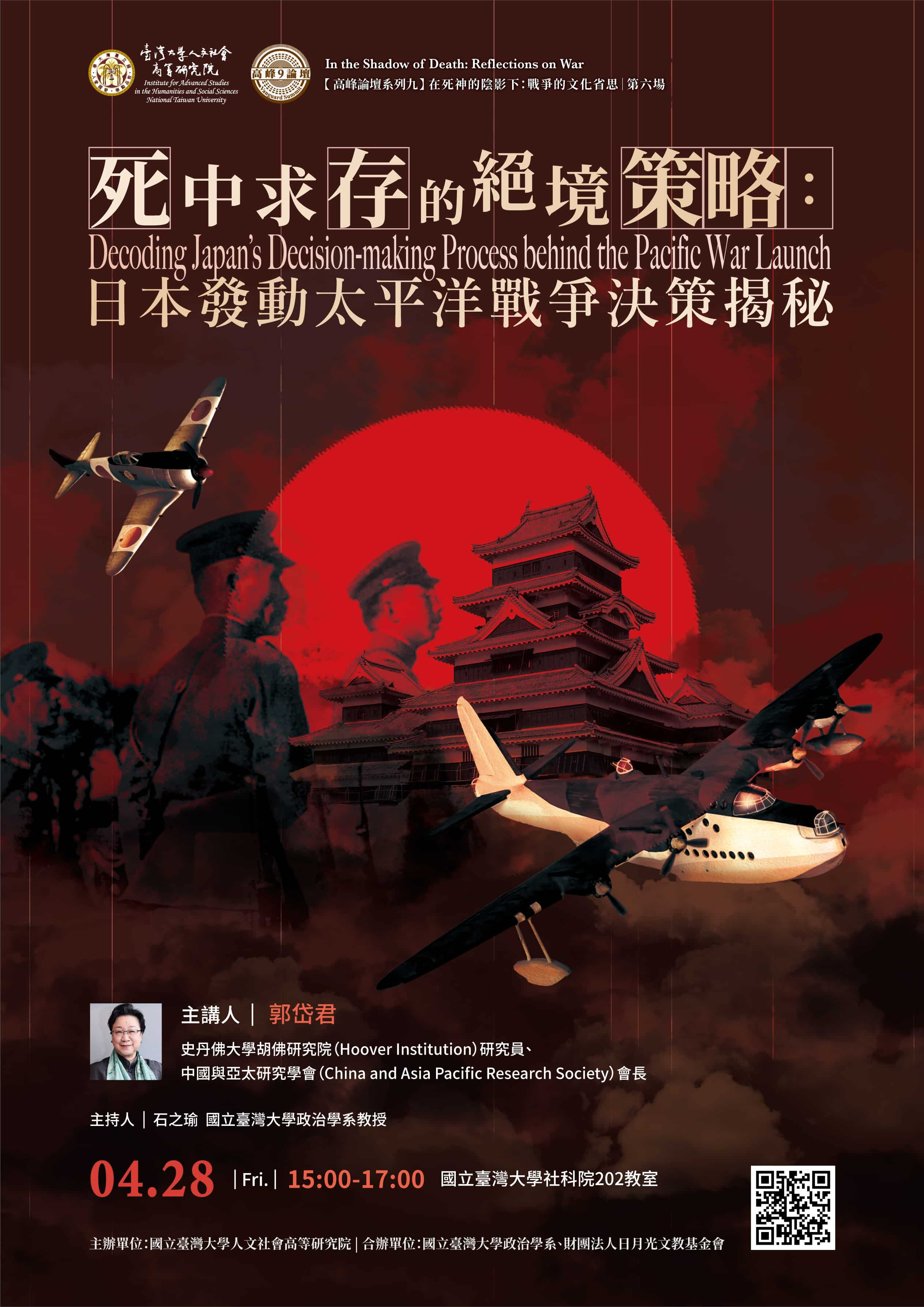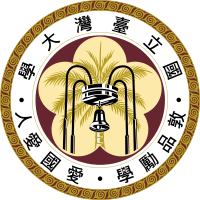【Vanguard Summit 9】6. Decoding Japan’s Decision-making Process behind the Pacific War Launch
【Vanguard Summit 9】In the Shadow of Death: Reflections on War
Topic: Decoding Japan’s Decision-making Process behind the Pacific War Launch
Venue: Room 202, College of Social Science, NTU
Co-organizer: Department of Political Science, NTU; ASE Cultural & Educational Foundation
現任史丹佛大學胡佛研究院(Hoover Institution)研究員、中國與亞太研究學會(China and Asia Pacific Research Society)會長;曾任史丹佛大學東亞研究所講座教授, 北京大學、復旦大學、浙江大學客座教授。
自2004年起﹐推動胡佛研究院「近代中國檔案及特藏史料蒐藏及研究計劃」,保存及研究國民黨檔案、蔣介石及蔣經國日記、宋子文檔案、孔祥熙檔案、以及許多中外重要領導人物的私人文件。這批新檔案的開放與研究,促使中西方重新認識二十世紀中國重大的歷史事件及領導人物,進一步重估、調整過去大家所熟知的歷史,也帶動了新一波的近代中國研究。
主要著作包括:重探抗戰史,1931-1945(3卷,2015, 2022); 走近蔣介石(2016); 臺灣經濟轉型的故事(2015); Leadership, Property Rights, and Institutional Change: Taiwan’s Economic Transformation, 1949-1965(2010);T. V. Soong: Selected War Correspondences, 1940-1943(戰時歲月--宋子文與外國人士往來函電稿新編(2010);T.V. Soong: Selected Minutes of Meetings with Foreign Leaders, 1940-1949(風雲際會--宋子文與外國人士往來函電稿,1940-1942)(2009);T.V. Soong: His Life and Times(宋子文與他的時代)(2008);Selected Telegrams between Chiang Kai-shek and T. V. Soong, 1940-1943(宋子文駐美時期電報選,1940-1943(2008);T. V. Soong in Modern Chinese History(2005);China’s Quest for Unification, National Security, and Modernization(2004);Watching Communist China, 1949-1979: A Methodological Review of China Studies in the United States of America and Taiwan(1996)等。
The Sino-Japanese War had a catastrophic impact on China, causing numerous casualties and altering its destiny. Its aftermath still affects the Asia-Pacific region and the world today. The US-China rivalry has turned the Indo-Pacific region into a focal point of global geopolitics and major power games, and the Taiwan Strait has become highly tense and sensitive.
The turning point of the war was the attack on Pearl Harbor. However, it remains puzzling why, despite being heavily engaged in the Chinese theater and with their resources already stretched, the Japanese army took the enormous risk of launching a surprise attack on Pearl Harbor in 1941. The attack triggered the Pacific War, ultimately leading to Japan’s own demise.
Japan’s army and navy had long wanted to expand their power over Southeast Asia’s resources by “Heading South”. However, the crucial issue was how to avoid conflict with the United States, which controlled most of Japan's oil and steel imports and had significant military and naval strength. Thus, "How to avoid US involvement in the war" became a critical factor in the decision-making process for Japan’s army and navy, as well as the cabinet.
However, Tokyo repeatedly miscalculated and underestimated the US response, leading Japan to gamble its national destiny and launch the Pacific War. Despite early successes, Japan soon found itself in a precarious situation and ultimately suffered a devastating defeat. Meanwhile, the war brought new opportunities for China's resistance against Japan.
Why did Japan choose to start a war that had no chance of winning? The decision-making process and underlying reasons were complex and delicate, making it a fascinating and remarkable story.




